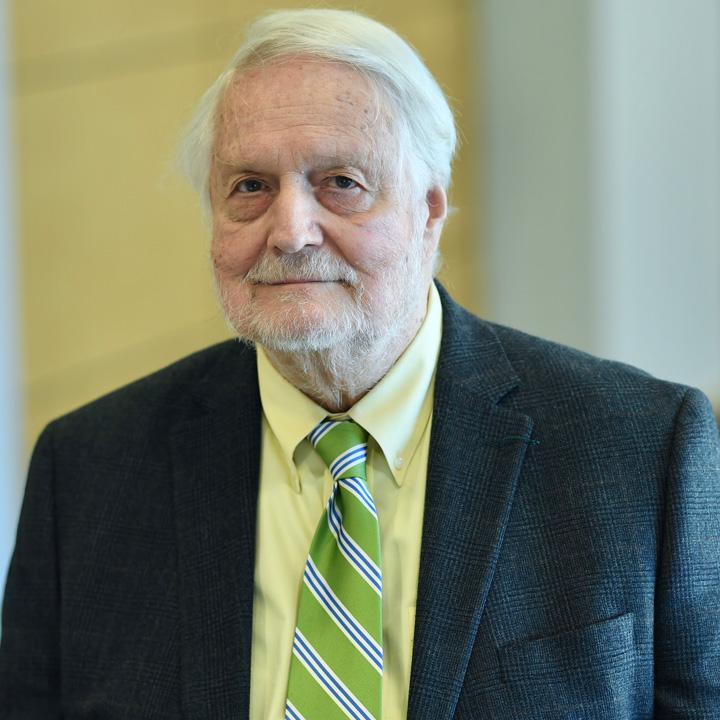
John A. Humbach
In Memoriam
Professor John A. Humbach, a cherished colleague and beloved teacher to generations of students at the Elisabeth Haub School of Law at Pace University, passed away on July 13, 2025. Read about Professor Humbach’s life and legacy
Biography
Professor John Humbach practiced corporate/securities law on Wall Street before becoming a professor in 1971. Prior to coming to the Elisabeth Haub School of Law at Pace University in 1977, he taught at Fordham Law School and Brooklyn Law School, and has taught as a visiting professor at the University of Illinois and the University of Hawaii. He has authored a number of articles in the areas of property law and professional responsibility as well as, more recently, on the implications of modern neuroscience for the criminal law and justice.
Professor Humbach has also produced computer-assisted instruction tutorials on the Estate System and Future Interests for first-year property students, which are freely available online. (See Professor Humbach's website.) He was a leader in the preservation of the 22,000 acre Sterling Forest, at the edge of the NYC metropolitan area and, until recently, served as chairman of his community Architectural Review Board. Professor Humbach served as James D. Hopkins Chair in Law during the 1993–1995 academic years.
Education
- BA, Miami University (Ohio)
- JD, Ohio State University
Selected Publications
View all of Professor Humbach’s publications on SSRN, Digital Commons or download his CV (PDF).
- Criminal Acts and Basic Moral Equality (PDF), 14 Wash. U. Jur. Rev. 341 (2022)
- Do Criminal Minds Cause Crime? (Neuroscience and the Physicalism Dilemma), 12 Wash. U. Jur. Rev. 1 (2019)
- Neuroscience, Justice and the “Mental Causation” Fallacy, 11 Wash. U. Jur. Rev. 191 (2019)
- Property as Prophesy: Legal Realism and the Indeterminacy of Ownership, 49 Case Western Reserve J. Int. L. 211 (2017)
- The Constitution and Revenge Porn, 35 Pace L. Rev. 215 (2014)
- Privacy and the Right of Free Expression, 11 First Amendment Law Review 16 (2012)
- “Privacy Rights: The Virtue Protecting False Reputations”, in The Right to Privacy in Light of Media Convergence (Dieter Doerr & Russell Weaver, eds. 2012)
- The Possibility of Moral Absolutes: Some Thoughts in Response to Jeremy Waldron on Torture (2011)
- Director Liability for Corporate Crimes: Lawyers as Safe Haven?, 55 N.Y.L. Sch. L. Rev. 437 (2010/2011)
- Teens, Porn and Videogames: Time to Rethink Ginsberg? Harvard Civil Rights-Civil Liberties Law Review, Amicus (10/30/2010)
Honors & Awards
- While in law school, Professor Humbach received a number of honors and awards for scholarship, including election to Order of the Coif, a legal honorary society.
- Awarded "Appie of the Year" for service in conservation, by New York-North Jersey Chapter, Appalachian Mountain Club, 2000.
Areas of Interest
Criminal Law, Justice and Ethics, General Property and Land Law, Legal Ethics (rules of professional responsibility), criminal justice policy issues: over-criminalization, mass incarceration, public safety concerns